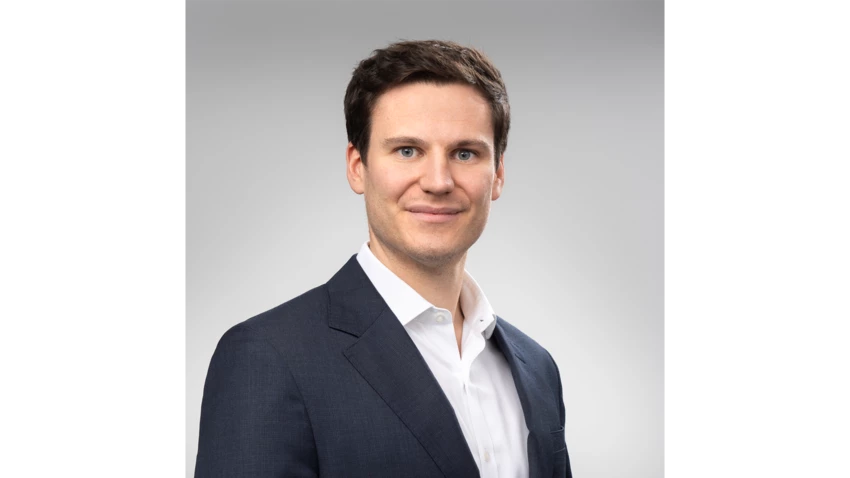
David Ray
Associate in Investment Banking
Denne siden findes ikke på norsk
Bli værende på denne siden | Fortsett til en lignende side på norskDavid Ray, the newest member of Nordea's Sustainable Finance Advisory team, hopes to apply his learnings from the investor side to help companies convey their ESG stories in a way that goes beyond large data tables with sustainability-linked metrics.

The importance of companies’ ESG performance has never been higher on investor agendas.
Someone who can speak to that first hand is David Ray, the newest member of Nordea’s Sustainable Finance Advisory team. David comes to Nordea’s Stockholm office from Janus Henderson Investors in London, where he spent recent years as an ESG analyst on the buy-side, engaging with portfolio companies on sustainability issues.
“We are now at a stage where stakeholders in every part of the system are beginning to ask questions about sustainability and impact. Thanks to this we are now reaching a tipping point. Sustainability is no longer just a nice-to-have for many investors and their clients,” he says.
David aims to bring the investor perspective to his new role when advising Nordea’s clients on how to approach their sustainability targets and key performance indicators (KPIs). One of his key focus areas will also be ESG reporting, helping companies navigate the jungle of new regulations, standards and ESG ratings.
“A lot of companies have positive practices in place, particularly here in the Nordics. However, they often don’t understand the importance of conveying these practices in the reporting, particularly when they have been embedded in company culture for a long time,” David says.
He notes that as ESG ratings agencies have rapidly gained power, issuers are bombarded with ESG surveys, and reporting can become a battle for a good ESG rating.
“While publishing large data tables with sustainability-linked metrics, may be good for a company’s ESG rating, this can mean that the relevance and impact of the data are lost,” he says.
Having done the analysis from the investor side, David says he hopes to be able to help issuers understand and communicate their story in a way that’s contextual and relevant for them.
While publishing large data tables with sustainability-linked metrics, may be good for a company’s ESG rating, this can mean that the relevance and impact of the data are lost.

Associate in Investment Banking
While reporting is important, David notes that the intense focus on reporting can also eclipse the actual progress on sustainability. By targeting good ESG ratings over long-term performance, companies may end up devoting more resources to reporting rather than implementing the changes they want to make to become more sustainable, he says.
There can also be a tension between encouraging companies to pursue long-term change while holding them to account on their reporting every quarter.
“We need to reach a middle ground where companies are reporting regularly but aren’t disproportionately judged on short-term progress, as long as they are in line with the long-term trajectory. We should put more focus on the intentionality – the how and the why behind the target,” David says.
Keeping the big picture in focus would also help address concerns over greenwashing, he adds.
Reflecting on emerging trends in sustainable finance, David notes a growing demand for solutions to sustainability issues that are closer to the companies, both geographically and when it comes to impact.
From an environmental perspective, there’s a growing scrutiny of the use of carbon offsets.
“It’s starting to be much more preferable for companies to contribute to tangible emissions reduction projects closer to the company’s impact source rather than simply purchasing offsets from a project halfway around the world,” he says.
On the social side, companies are increasingly expected to tackle social issues related to their operations or productions rather than simply contributing to social outcomes via charity. For example, a company developing commercial real estate might commit to hiring a certain proportion of local workers or provide incentives for local businesses to operate within the new development.
This desire for a local, connected approach also ties to an increased focus on the product or business model of the company.
“Companies increasingly have to answer for both the direct and indirect impacts of both operations and products,” he says. “Product impact can no longer be overlooked regardless of a company’s operations.”
Position: ESG Specialist, Sustainable Finance Advisory
Age: 30
Home: Stockholm (previously London)
Former jobs:
Analyst, Governance and Responsible Investment, Janus Henderson Investors
Research Assistant, Centre for Environmental Policy, Imperial College London
Scientist, Cobham plc, working with lightning protection of aircraft
Interests: Making the most of the Swedish outdoors – hiking, biking, kayaking and camping
Interests in sustainability: Biodiversity, sustainable development, understanding the interaction between business and society
Nordea's Sustainable Finance Advisory team helps clients navigate fundamental changes in the financial markets as the global economy shifts towards becoming sustainable and low-carbon. Find out more about our sustainable product offerings and holistic advisory services.
Learn more
Sustainability
Amid geopolitical tensions and fractured global cooperation, Nordic companies are not retreating from their climate ambitions. Our Equities ESG Research team’s annual review shows stronger commitments and measurable progress on emissions reductions.
Read more
Sector insights
As Europe shifts towards strategic autonomy in critical resources, Nordic companies are uniquely positioned to lead. Learn how Nordic companies stand to gain in this new era of managed openness and resource security.
Read more
Open banking
The financial industry is right now in the middle of a paradigm shift as real-time payments become the norm rather than the exception. At the heart of this transformation are banking APIs (application programming interfaces) that enable instant, secure and programmable money movement.
Read more